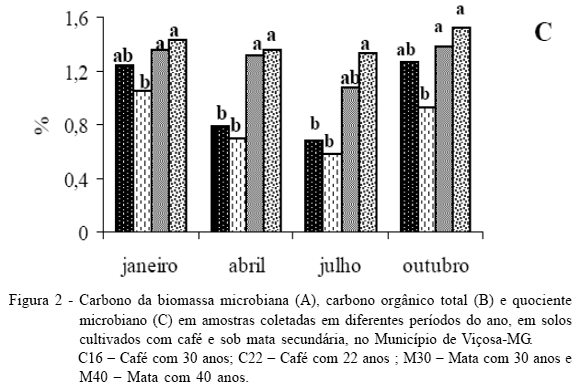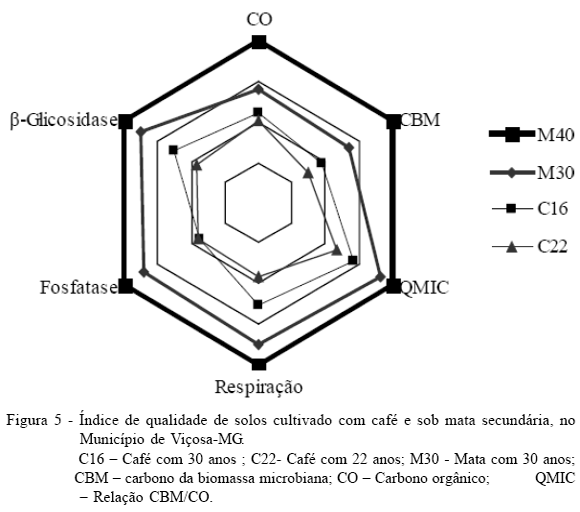This study aimed to evaluate the effect of the coffee monoculture in an oxisol of the Zona da Mata (MG, Brazil) through changes in total organic carbon in the soil and microbiological indicators of soil quality. Four areas were selected: a) culture of coffee (Novo Mundo) during 22 years (C22); b) culture of coffee (Catuaí) during 16 years (C16) c) secondary forest with approximately 30 years old (M30) and d) secondary forest during 40 years (M40). Soil samples were collected in the depth of 0-10cm in January, April, July and October. The biological variables studied were sensitive to characterize changes in soil quality from coffee monoculture. The results varied with the season and climate. In the driest period, a reduction in the values occurred, affecting more drastically the coffee systems. The index of soil quality showed that the C22 system presented greater loss of quality in relation to the M40, indicating less sustainability commitment.
soil quality; sustainability; Coffea arabica; seasonal









